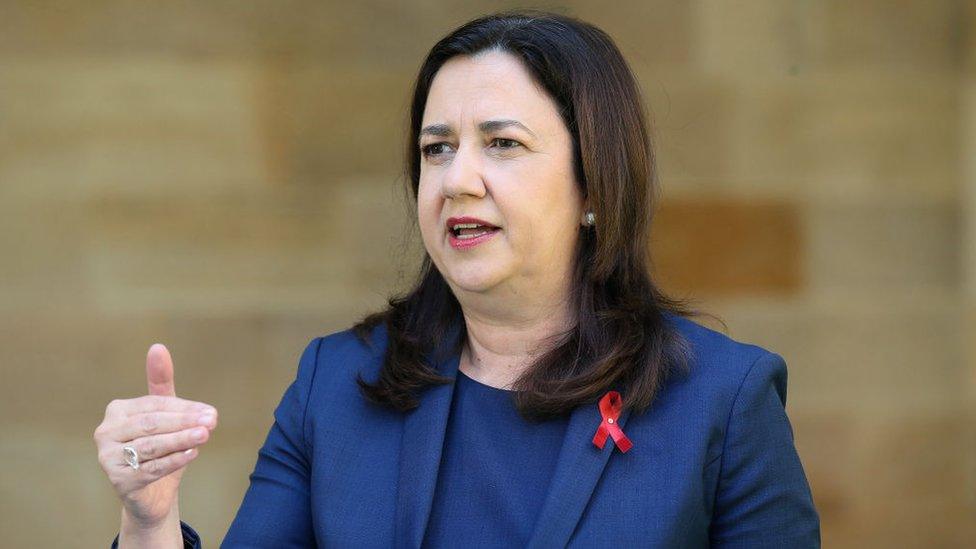Brisbane lockdown: Australian city to shut down over seven cases
- Published
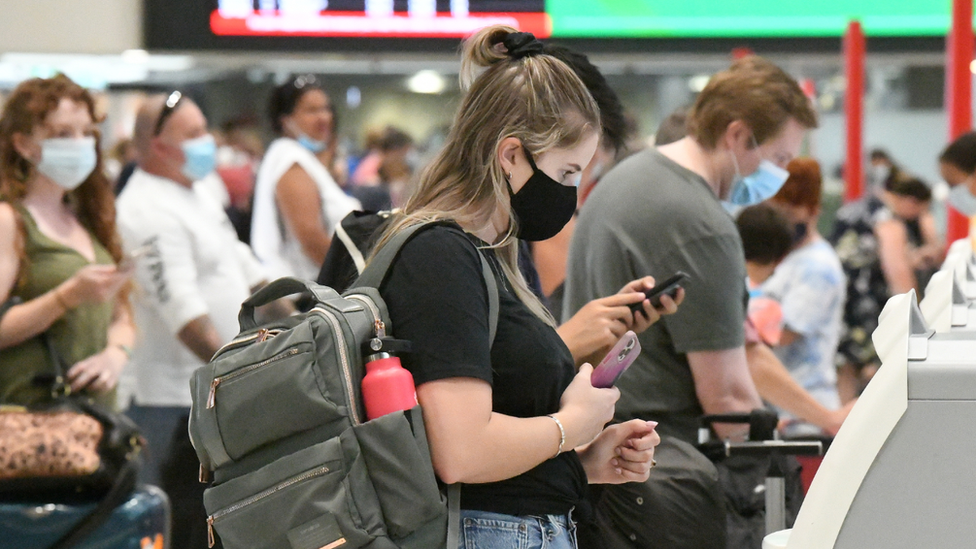
Brisbane Airport on Monday was bustling as people flew out of the city prior to its lockdown
The Australian city of Brisbane will enter another snap three-day lockdown to contain a coronavirus outbreak which has grown to seven cases.
The Queensland state capital - home to over two million residents - will begin the lockdown at 17:00 Monday local time (06:00 GMT).
In January, the city also shut down for three days due to a single case.
The city has seen very few locally acquired cases since Australia's first wave of the virus a year ago.
The Brisbane outbreak, first reported on Saturday, marks the first cluster of community transmissions in Australia in almost a month.
Health officials are yet to determine how the virus leaked into the community, but say it is potentially linked to a hospital doctor who was infectious two weeks ago.
After the lockdown was announced, locals rushed to shops to stock up on goods despite officials urging this was unnecessary.
Video online also showed plane passengers in Sydney scrambling to disembark a flight bound for Brisbane after learning of the announcement.

More on Covid in Australia:
I cycled every street allowed under Melbourne’s tough lockdown

Queensland Premier Annastacia Palaszczuk said the discovery of four more local cases, reported on Monday, showed there was "more community transmission" in the city.
A lockdown was necessary to help contact tracers contain the spread, she said.
"I know it is really tough. We have Easter coming up, we have school holidays coming up," she said at a press conference on Monday.
"But let's do it now and let's do it right and let's see if we can come through it at the other end."
The lockdown will affect the Greater Brisbane area, which includes the councils of Brisbane, Logan, Moreton Bay, Ipswich and Redlands.
As with previous lockdowns, people will only be able to leave their homes for four essential reasons: exercise, shopping, necessary work and caregiving.
Schools and workplaces will be closed as well as non-essential businesses and services.

Lockdown interrupts 'normal life' in Brisbane
Simon Atkinson, BBC News in Brisbane
Brisbane has been here before. And today - just as in early January - many people's instinct was to head to the supermarket.
In an inner-city branch of Woolworths, shoppers lined up out the door. Once inside, queues ran the length of the store - certainly not typical for a Monday morning.
And while Australians are known for their love of alcohol, I was slightly surprised to see quite so many people heading into in the "bottlo" next door to get in supplies. All a bit unseemly for 09:00.
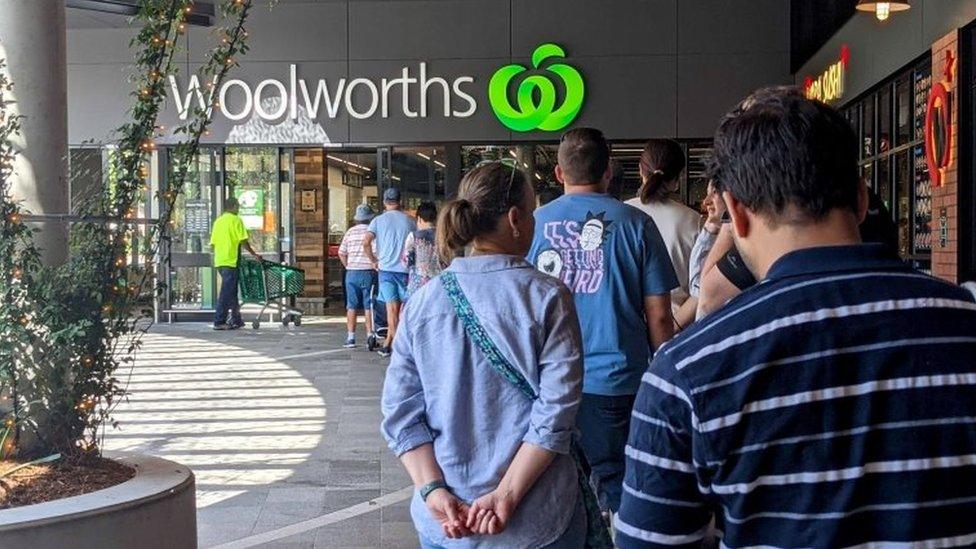
Shoppers queue in Brisbane on Monday
There is no rationale for the rush. Supermarkets and off licences are classed as essential and the state premier has already urged locals to avoid stockpiling.
But equally, there is no sense of panic. Only one in five shoppers were wearing masks (they become mandatory in a few hours time), and nearby cafes remained packed.
Life here has been pretty much normal for months. Most appreciate how good they have it. But the chatter over coffee was pessimistic, with plenty of talk about the Easter plans that'll be in tatters should this snap shutdown be extended.

Elsewhere across Queensland, residents will have to wear face masks again in shops and on public transport, and home gatherings will be limited to 30 people.
Ms Palaszczuk said: "This is essential everyone that we do this to stop further transmission. We've seen what's happened in other countries. I don't want to see that happen to Queensland."
The popular tourist town of Byron Bay, south of Brisbane, has also been placed on high alert after two infected people visited on the weekend.
Pattern of snap lockdowns
Australia has reported 909 deaths and about 29,200 cases since the pandemic began - a number far lower than many nations. It's in the early stages of its vaccine rollout.
The nation has faced sporadic outbreaks over the past year, with the most severe in Melbourne last July triggering a punishing lockdown that lasted almost four months.
Since then, authorities have acted fast at the start of outbreaks to curtail them early on. Several cities have experienced snap lockdowns in recent months:
Nov 2020: Adelaide (and South Australia state) for three days
Dec 2020: Parts of Sydney for three weeks
Jan 2021: Brisbane for three days
Feb 2021: Perth for five days
Feb 2021: Melbourne for five days
Lockdowns have proved to be an effective health measure but the unpredictable shutdowns of cities have left a significant economic toll, experts say.
Australia's domestic tourism industry has been particularly hit hard, with states often shutting their borders to people from declared hotspots.
Interstate travel to and from Brisbane will now be restricted until it's no longer listed as a virus hotspot.
Related topics
- Published11 March 2021
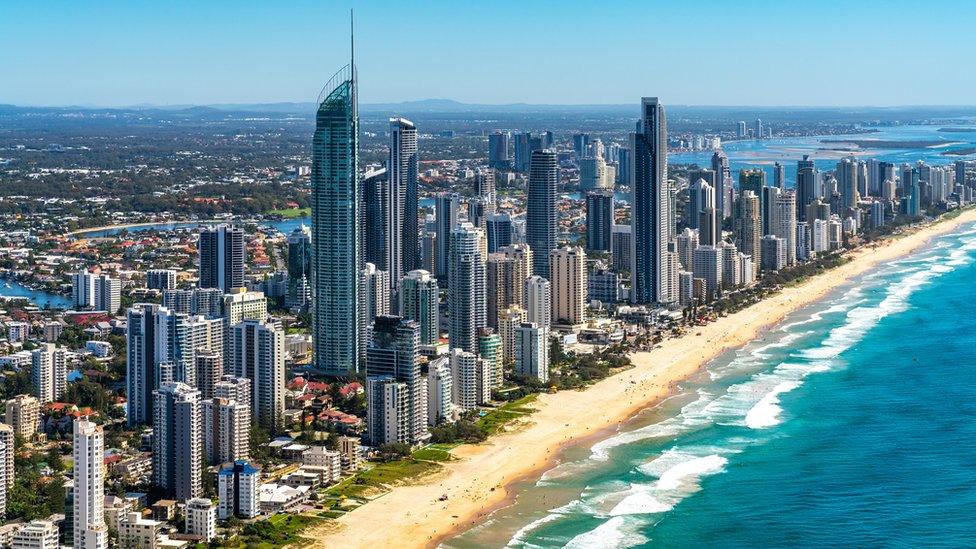
- Published8 February 2021
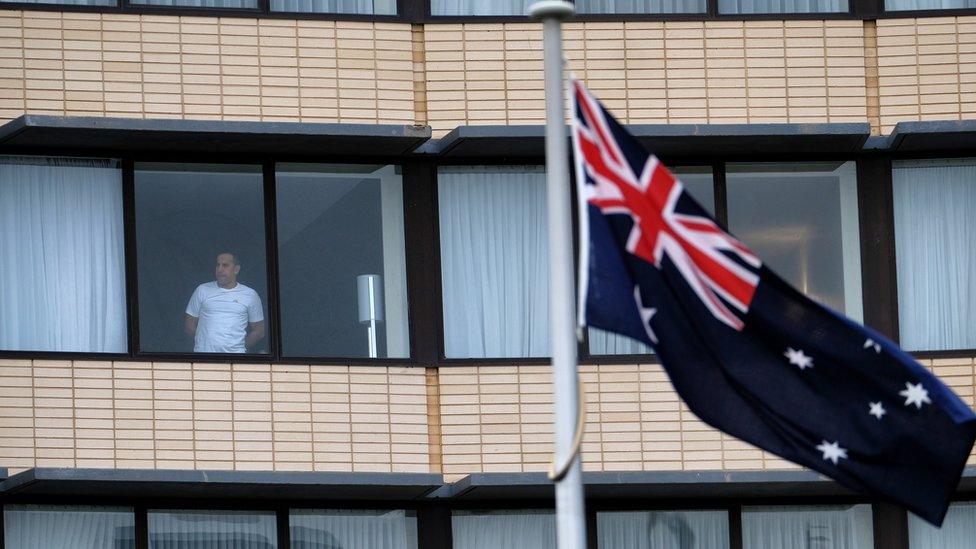
- Published8 January 2021
